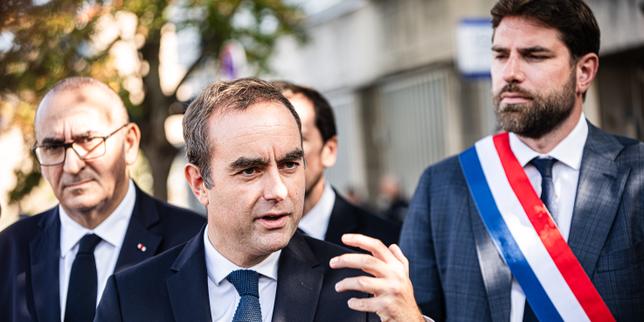Political Turmoil Mounts Following Lecornu II Government Reshuffle
The Lecornu II government reshuffle has prompted political instability, with opposition motions and strategic appointments amid rising far-right influence.
- • Sébastien Lecornu announced a reshuffle introducing new ministers including Jean-Pierre Farandou and Mathieu Lefèvre.
- • Marine Le Pen's RN plans to file a motion of censure against the new government.
- • Polls show RN leading with 34-35%, while the central political bloc declines.
- • Calls for National Assembly dissolution follow Lecornu's resignation amid concerns of parliamentary fragmentation.
Key details
The recent reshuffle of the Lecornu II government, announced on October 12 by Sébastien Lecornu, has sparked significant political upheaval and reactions. The reshuffle aimed to blend experienced figures, young parliamentarians, and civil society members, reflecting an attempt to diversify government representation. Notably, Jean-Pierre Farandou, nearing the end of his SNCF leadership, was appointed Minister of Labor, bringing expertise in union and social negotiations, while Mathieu Lefèvre, a Renaissance party deputy and close ally of Gérald Darmanin, was named Minister Delegate for Ecological Transition despite limited financial maneuvering power in this role.
This government shakeup occurs amid a volatile political landscape, with the Rassemblement National (RN) polling between 34% and 35%, emerging as the leading political force, while the central bloc is collapsing and competing closely with the left ahead of the 2027 elections. Following Lecornu's resignation, opposition voices have called for the dissolution of the National Assembly, though concerns linger about the possibility of another fractured and ungovernable parliamentary makeup.
In direct response to the reshuffle, Marine Le Pen announced that the RN will submit a motion of censure as early as Monday, underlining opposition discontent and challenging the government's authority. Meanwhile, Gérald Darmanin declared he would step back from all partisan activities, signaling a push for government focus amid political tensions.
These developments underscore the fragile position of the Lecornu II government as it navigates public expectations and parliamentary challenges in a polarized environment marked by rising far-right influence and strategic repositioning within the ruling and opposition parties.
This article was translated and synthesized from French sources, providing English-speaking readers with local perspectives.
Source articles (3)
Source comparison
Resignation of Sébastien Lecornu
Sources disagree on the timing of Sébastien Lecornu's resignation.
lefigaro.fr
"the resignation of Sébastien Lecornu has prompted discussions among opposition members advocating for the dissolution of the National Assembly."
liberation.fr
"On October 12, Sébastien Lecornu announced a significant reshuffle of his government."
Why this matters: Source 97884 mentions the resignation of Sébastien Lecornu as a recent event prompting political discussions, while Source 97997 states that he announced a government reshuffle on October 12, implying he was still in office at that time. This discrepancy affects the understanding of the political context surrounding the government changes.
Latest news
French Economy Minister Calls for Full Insurance Industry Mobilization Amid Devastating Storm Floods
France Boosts Social and Solidarity Economy with New Tools and Potential Tax Reforms in 2026
Saint-Nazaire Mayor Condemns Vandalism of Two Political Offices as Attack on Democracy
Severe Flooding Continues Across Southwest France Amid Ongoing Emergency Measures
Rise in Extreme Right-Wing Political Violence Shakes France Since 2022
2026 French Municipal Elections and Local Debates Reveal National Political Stakes
The top news stories in France
Delivered straight to your inbox each morning.



